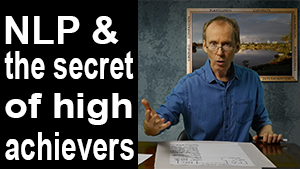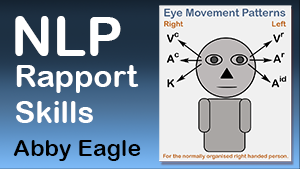



Learn to overcome anxiety and build confidence in public speaking using NLP and hypnotherapy. Phone 07 5562 5718 or send an email to book a free 20 minute telephone, Skype or Zoom session with Abby Eagle. Practise your debating skills with an NLP Coach online or face-to-face. NLP Hypnotherapy Meditation Gold Coast, Robina.
Learn How to Overcome Your Fear of Speaking in Public and Sway an Audience with Passion, Motivation and Inspiration
Attend our Media Training Events and build confidence in public speaking.
 8 key steps to public speaking confidence.
8 key steps to public speaking confidence.
- Know the content of your presentation like the back of your hand.
- Have the desire to become a great presenter. Not just because you need to but because you want to.
- Clear limiting beliefs and emotions such as doubt, fear, shyness and anxiety.
- Build in robust feelings of self confidence and self esteem.
- Associate into the qualities and attributes of your role models.
- Mentally rehearse the desired behaviour while maintaining a resource state.
- Develop communication skills.
- Practise speaking to a group, then practise some more.
Watch the Video: How to Build Confidence in Public Speaking
Click the Image to Watch on YouTube
 Prepare
your lecture material
Prepare
your lecture material
- Know your subject.
- Clarify your target group. Who is the audience? What is important to them? What are their values? What is their culture?
- What knowledge, information, skill, understanding do you want to communicate?
- What is the target group moving away from? What are they moving towards? What are their needs? What are their wants? What do they need to learn to get them from their present state to their desired outcome? What is the solution that you can offer them?
- Write a structured session outline keeping it as simple as possible.
- When you begin the presentation tell the participants what they are going to learn and how you are going to conduct the presentation.
- Stay focussed on the topic.
- Time your presentation leaving adequate time for answering questions.
- Prepare audio visual aids: posters, PowerPoint slides, whiteboard, etc.
- Prepare hand outs, notes, references, resources, etc.
- Understand that you are in control. The audience has no idea of what you planned to say so they have no idea of whether you did it right or not, so relax.
- Rehearse the presentation out loud in a theatrical manner with big gestures. Make it fun and playful. When you give the presentation it will naturally get toned down.
- Practise at every opportunity then practise some more.
 Prepare
yourself
Prepare
yourself
- Develop a passionate attitude towards the lecture content. You must love your work.
- Develop a positive attitude towards the participants. What is your purpose for talking to the group? You must want to help them in some way or another.
- If you must compare yourself with other presenters then use the comparison with the other presenter to reinforce your own good points.
- To overcome self consciousness you need to stay in your body. Don't imagine that others are looking at you. You need to stay in NLP perceptual position number one. That is, looking out of your eyes, not thinking of the audience looking at you. You need a meta program of 'other', not 'self'.
- Anchor in resource states using NLP.
- If you are shy then reframe it as a positive attribute. Embrace your shyness. Some of the greatest film and stage actors are introverts.
- Accept yourself for who you are right now. If you are terrified then enjoy it but don't judge yourself and think that you should be like someone else.
- If you don't set yourself up on a pedestal then no one can knock you down. Just be an ordinary human being.
- Don't try and be perfect, just improve upon yourself 1% each time you make a presentation.
- Clear negative emotions and limiting beliefs with NLP.
- Learn how to meditate and quieten the mind.
- Remember the audience is only too ready to esteem you. Inherent in the position of being a presenter is the adoration of the audience, that is as long as you are respectful and loving towards the participants.
 Learn
how to meditate
Learn
how to meditate
- Learning how to enter deep meditation cannot be understated. What sports people refer to as 'the zone' is in fact a meditative state of mind, a flow state. Meditation skills that could ordinarily take years of trial and error with traditional methods, you can learn with Abby Eagle in a matter of hours.
- So do the 'hard yards', practise your meditation every day and create a sense of peace in your mind before you go in front of an audience. Once you have experienced the benefits of meditation you will find it to be self motivating.
- Learn
how to develop feelings of kindness and compassion towards yourself and others.
When you can do this then the fear of public speaking naturally disappears and a new found sense of self emerges.
 Learn
how to model patterns of excellence
Learn
how to model patterns of excellence
- Use NLP and meditation tools and techniques to model the excellence of others and transfer it to yourself.
- Think of yourself as an actor going on stage. Each time you have to speak in front of an audience think of it as a practise session but give it 100%.
- Be curious about other presenters. At every opportunity look, listen and feel.
- Become fascinated with those presenters who have the skill to sway an audience, whether you agree with them or not.
- Treat television and films as the most cost effective training tool you can find. Learn how to model the attributes of those people who inspire you. See yourself standing in the shoes of your role model. Let their speech patterns become your internal dialogue.
 Learn
how to build rapport
Learn
how to build rapport
- Learn NLP rapport skills. Pace where the audience is at then lead them towards your desired outcome.
- Match and mirror physiology, voice tonality and tempo, and words. Calibrate and read body language.
- Start out slow to get rapport with the kinaesthetic people, pronounce your words carefully for the auditory people and then build up speed to entrain the visual people.
- Use your voice tone, tempo, volume, inflections, accents and pauses to seduce the audience.
- Vary the pace of your presentation. Some sentences should be spoken very quickly, slowing down to emphasis specific phrases, while marking out individual words for impact.
- Esteem the participants at every opportunity. Make them feel good about themselves.
- Don’t suppress a reaction or contribution by a participant but make an acknowledgment and give him/her an opportunity to express him/herself in some small but meaningful way.
- Pace the participants values, meta programs, culture and the way they think about time.
- Lead the participants towards your desired outcome with your language but give the illusion of free choice.
- Don’t talk down to the participants. Meet them on an even level. Treat the presentation, communication as if it is a review of what the participants already know, even though it may not be.
- Don't be known for just giving a good talk but develop a reputation for motivating people to action.
- Be passionate, if you can't be passionate then find something else to talk about.
 Learn
NLP and Ericksonian Hypnosis language patterns so as to influence your audience with integrity
Learn
NLP and Ericksonian Hypnosis language patterns so as to influence your audience with integrity
- Treat every communication as a structured sales process.
- Get the attention of your audience. Build rapport. Ask questions. Identify needs and wants.
- List the most common questions that you are likely to get from your audience and then generate a number of answers for each question.
- Inoculate against the most common objections before they arise.
- Practise responding to questions and objections.
- Don't try and be a 'know it all' - a teaching teacher - rather just be a learning leader who is able to point to a source of information. Rather than tell the audience what to think pose questions for consideration. Throw challenging questions back onto the group.
- Learn Ericksonian hypnosis language patterns. Practise conversational hypnosis. Learn to recognise trance states. Use hypnosis at every opportunity.
- Each and every one of us is a hypnotist. Those who would deny hypnosis are sometimes the greatest hypnotists.
 Study
personality types
Study
personality types
- Learn how to profile people and recognise different personality types. The Myers Briggs personality typing is one of the best known. The following two books are a starting point:
- Please Understand Me 11: Temperament character and intelligence by David Keirsey. 340 pages.
- The Sixteen Types: Edited from Please Understand Me 11 by David Keirsey. 40 pages.
- The Wealth Dynamics personality profile test is the easiest to use.
- But don't stop there. Take it one step further and learn how personality types are created through a synthesis of meta programs.
 Deliver
your presentation with confidence
Deliver
your presentation with confidence
- Get into state. Use peripheral sensing to relax and take in the entire audience.
- Tell the audience what you intend to talk about, for what purpose, and then explain how you intend to do that.
- Play with the audience. Have fun, be a little theatrical and demonstrative.
- Express emotions. Help the audience to both 'laugh and cry'.
- Communicate with your body as well as your voice. Just look at how music video clips have evolved over the last 30 years.
- Stand tall like an Emperor and move with purpose. Don't pace aimlessly. Use gestures with purpose.
- Make eye contact. If possible get on a first name basis with some of the participants. Involve them. If you build rapport with the people at the back of the audience then you will have rapport with the entire audience.
- Gather information from some of the participants and use it to customise your presentation.
- Use analogies and metaphors to develop a deeper understanding of the material being presented.
 Get
feedback on your performance
Get
feedback on your performance
- Benchmark your performance. Write a feedback form for yourself on a number of salient points and evaluate your performance in an objective manner after each session.
- Solicit feedback from others after the presentation.
- Ask for written feedback and testimonials from the participants but don't let the positive feedback pump you up or the negative feedback drop you down.
Get NLP Coached on the Gold Coast to overcome your fear of speaking in public and learn how to sway an audience with passion, or at least just enjoy yourself...
Overcome panic attacks and anxiety with NLP and hypnotherapy - learn techniques to improve your confidence and skill in public speaking - learn how to model the attributes of your role models - learn how to speak with confidence, charisma and professionalism - learn how to replace negative self talk with true positive thinking - learn how to virtually eliminate anxiety - learn how to tap into resource states - gain the confidence to go for what you really want - learn how to quieten the mind and find a sense of inner peace.
Attend our Media Training Events and build confidence in public speaking.
Book a free no obligation phone, Skype or Zoom session - Take the opportunity to get your questions answered. When you contact us please specify whether you want a free 20 minute interview or whether you want to book a session. What does a coaching session cost? Varsity Lakes Qld - Gold Coast Office |
| DISCUSSION GROUPS | |
|---|---|
 |
|
| NLP Future Selfing | |
| NLP, Hypnotherapy & Meditation | |
| NLP Peace Mapping | |
| Facebook Discussion Group | |












